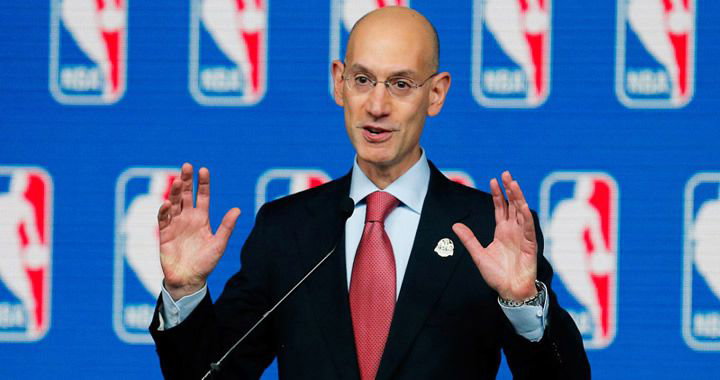NBA calling for stricter betting controls following game manipulation case

Following the lifetime ban of former Toronto Raptors forward Jontay Porter for manipulating game outcomes last year, NBA commissioner Adam Silver said the league is working with sportsbooks to reduce prop bet risks that could compromise competitive integrity.
Silver told The Pat McAfee Show that limiting wagers on two-way players is part of a wider effort to prevent future manipulation and protect player credibility in a growing betting market.
League acts after Porter scandal
The Porter case drew national attention to how player-specific prop bets can be exploited. The NBA investigation found that Porter shared confidential information, limited his own playing time, and placed bets on league games during the 2023–24 season. The inquiry determined he intentionally underperformed in several matchups to influence betting outcomes, resulting in a lifetime ban.
According to DraftKings data, Porter’s unders became unusually profitable on specific game days, including one instance when he exited early with an injury. The pattern raised concerns about vulnerabilities linked to individual player wagers.
Silver said the NBA has already asked sportsbook partners to pull certain prop bets, particularly those tied to players on two-way contracts, who may have fewer financial stakes in the competition.
“We’ve asked some of our partners to pull back some of the prop bets, especially when they’re on two-way players, guys who don’t have the same stake in the competition, where it’s too easy to manipulate something that seems otherwise small and inconsequential,” Silver said. “We’re trying to put in place, learning as we go and working with the betting companies, some additional control to prevent some of that manipulation.”
Player and fan protection
Silver also raised concerns about fan reactions tied to betting losses. He said that even when teams win, players can face harassment from bettors who lose individual wagers.
“It’s often the case that your team wins and a player scores 25 points, but the fan, the bettor, had bet that the player was going to score 28 points or 30 points,” Silver said. “We have to protect the competitors. We want to protect the environment in the arena of people getting out of hand.”
The NBA recently issued a memo reminding teams of the need for consistent enforcement of its Fan Code of Conduct to prevent misconduct in arenas, according to an ESPN report.
Push for unified regulation
Silver has been an advocate for legalized sports betting since 2014, when he called for federal oversight in a New York Times op-ed. At the time, sports wagering was limited mainly to Nevada. As of 2025, 39 states, the District of Columbia, and Puerto Rico have legalized betting markets.
“I think there should be more regulation, frankly,” Silver said. “I wish there was federal legislation rather than state by state. You’ve got to monitor the amount of promotion and advertising around it.”
In an interview with Sports Illustrated, Silver noted that leagues were not directly involved in shaping how state betting laws were written. “When sports betting was legalized, the NBA was not at the table,” he said. “These were deals cut between states and gaming operators.”
Monitoring through legalized systems
Despite concerns about manipulation, Silver said legalized betting provides tools to detect irregularities that were previously unavailable.
“With this regulated structure, we can monitor it in ways that were unimaginable years ago,” he said. “If there’s any aberrational behavior, people betting large numbers who hadn’t historically done so, or even the geotargeting, we know exactly from where the bets are being placed.”
Silver added that monitoring through regulated systems allows the league and its partners to trace unusual betting patterns and identify potentially fraudulent activity, including wagers placed from inside arenas.
















